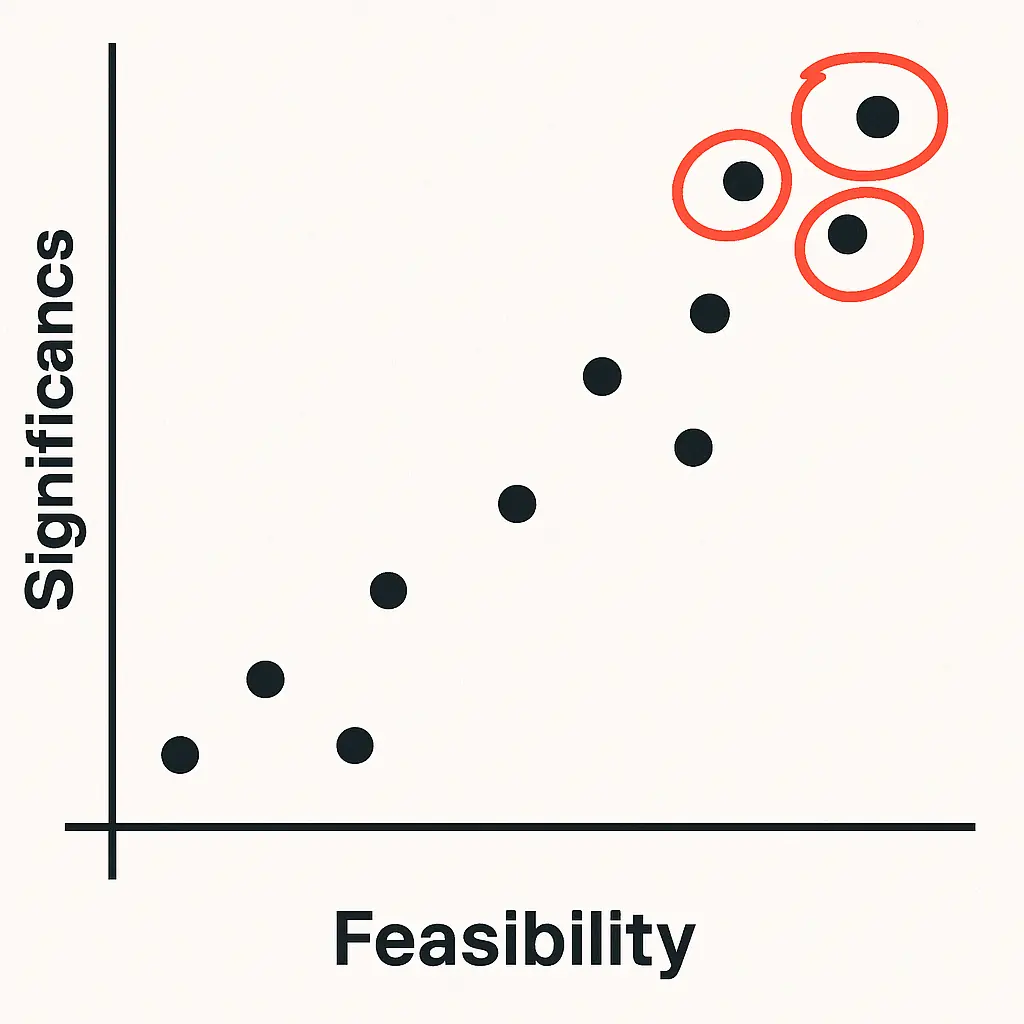What is the first step in writing your dissertation?
Clarify Your Dissertation's Topic & Scope Before Anything
Your Biggest Step is also your First Step
Determine your Core Question

Find something that interests you but do not necessarily commit to it. If your interest leads to issues - then be ready to reverse course. It is motivating to have a topic that interests you but it must also be relevant, feasible to study, and has potential for originality.
Turn your topic of interest into a precise question. This will form the basis of your Research Question. (RQ)
Ask yourself, “What relationship or phenomenon am I investigating?” Plug your core question into this template: “How does [X] influence [Y] among [Z context]?”
This anchors your inquiry and highlights which variables and population you’ll study.
Contact a Strategist to Okay your topic!
Give us a way to contact you and we will reach out to have a discussion. Wisely choosing a topic is the single most important thing in Dissertation Success.
The Next Step to is narrow down your current question.
Here we determine what makes your Dissertation doable.
We find students gain immense value using this simple process. It seems rather complicated but give it a shot.
You owe it to your dissertation!
Keep your project manageable by mapping potential research approaches against two axes—significance and feasibility:
- List up to 10 subtopics or contexts you could tackle.
- Score each one by both the Significance (impact on field or stakeholders) and the Feasibility (data access, time, resources). This is not that simple but go ahead and give it your best.
- Now start your focus on items that score high on both axes. This ensures your dissertation is useful and interesting while still easy to execute.

Define Clear Boundaries
By explicitly defining boundaries you will save yourself from extraneous work.
Ask yourself - which sub-demographics would have more data available?
Data Availability Shapes Feasibility
If you rely solely on collecting your own data, you run the risk of small sample sizes, extended recruitment periods, and higher costs.
In contrast, choosing a group with more readily available data sources allows you to focus more of your time on analysis and interpretation.
Rephrase your core question to include explicit limits. For example - What is the population (age, industry, region) you are wanting to study?
What time frame (around a geo-political event, post-pandemic, historical period)? What Methods will your study use(surveys, interviews, experiments or mixed methods)?
What is your conceptual scope (specific theories or constructs you will include or exclude)?
Not sure if your scope is too broad or too narrow? Contacting DissertationStrategies.com for brief feedback would be recommended in this situation.
Summarize these in a bullet list so you and your advisor always know what stays in and what stays out. This simplifies things going forward so that your scope doesn't creep on you, allowing you to maintain focus throughout the development phase.
Craft a One-Sentence Pitch
This pitch is what help you form your Research Question
Try following this formula: “I’m investigating how [X] affects [Y] in [Z context], using [METHOD], to inform [AUDIENCE/PURPOSE].”
Example:
“I’m investigating how remote-work policies affect team cohesion in San Francisco tech startups through a mixed-methods survey and interview design, to guide HR strategies in hybrid environments.”
You should practice your one-sentence pitch out loud until it flows naturally. If you stumble, refine until you can deliver it confidently to anyone—even over breakfast. This is not necessarily necessary but it gives students a certain confidence when they can concisely describe their study. Your dissertation is your work - your child - you should be happy and confident to talk about it .
Iterate With Rapid Feedback
- Share your pitch and boundaries with peers, advisors, or a writing group. If you don't feel like you have peers who would be willing to provide feedback, then seek out internet forums. Try reddit.com/r/Academic or reddit.com/r/PhD.
- Note which parts of your pitch spark questions or confusion—those are signals you need to tighten language or adjust scope.
- Repeat this loop until your listeners readily understand it on their first try.

